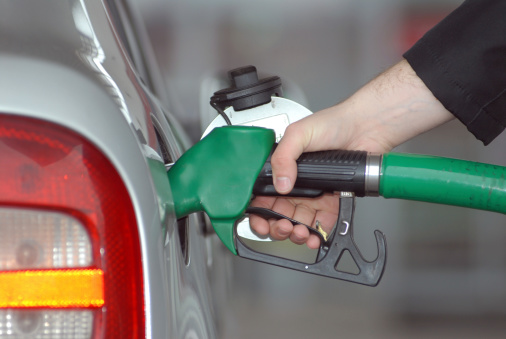If analysts need any early signals that the drop in oil prices has begun to affect gasoline prices, it is the fall off in the cost of an average gallon of regular across the 50 states. Gas prices are below $3.50 in 11 of them.
The price of an average gallon of regular nationwide is $3.64 according to GasBuddy, and it has not changed substantially for weeks. Before that, as the crises in the Middle East worsened, gas prices rose as crude reached nearly $110. Since then, it has fallen back to slightly more than $103, and it is still falling.
Oil prices do not play the only role in the price of gasoline. The U.S. Energy Information Administration (EIA) reports gas prices could rise in the second half if geopolitical threats, particularly in Iraq, worsen. For the time being, that assessment is too aggressive.
Among the other factors in gas prices are refinery capacity and prices, and the cost of transportation. Among the most visible evidence of this is that most states with low gas prices are near refineries or a large energy producers. Many of the states on the low price gas list are clustered around the Gulf of Mexico, close to some of the largest refineries in the United States. Seven of the 10 largest U.S. refineries are in Texas and Louisiana. Gas prices are very low in these states, which include Alabama (with an average price of $3.38), Mississippi ($3.40), Oklahoma ($3.43), Louisiana ($3.44), Texas ($3.47), Arkansas ($3.42), Kansas ($3.49), Missouri ($3.46) and Tennessee ($3.42).
Two other states with low gas prices are South Carolina ($3.34) and Virginia ($3.46).
There will always be a debate about at what level high gas prices become a major drag on American gross domestic product. A month ago, they were likely to have been a threat. Lower- and middle-class households based on income continue to face pressure as real income has not risen in a decade. Food, shelter and clothing make up too much of their budgets to allow for large increases in energy costs. This is particularly true for households where some residents have to drive many miles per year.
For the meantime, the economy seems set for some relief as gas prices have started to drop. More and more states are likely to have gas prices at “affordable” levels.
ALSO READ: Ten States With the Fastest Growing Economies
The #1 Thing to Do Before You Claim Social Security (Sponsor)
Choosing the right (or wrong) time to claim Social Security can dramatically change your retirement. So, before making one of the biggest decisions of your financial life, it’s a smart idea to get an extra set of eyes on your complete financial situation.
A financial advisor can help you decide the right Social Security option for you and your family. Finding a qualified financial advisor doesn’t have to be hard. SmartAsset’s free tool matches you with up to three financial advisors who serve your area, and you can interview your advisor matches at no cost to decide which one is right for you.
Click here to match with up to 3 financial pros who would be excited to help you optimize your Social Security outcomes.
Have questions about retirement or personal finance? Email us at [email protected]!
By emailing your questions to 24/7 Wall St., you agree to have them published anonymously on a673b.bigscoots-temp.com.
By submitting your story, you understand and agree that we may use your story, or versions of it, in all media and platforms, including via third parties.
Thank you for reading! Have some feedback for us?
Contact the 24/7 Wall St. editorial team.



